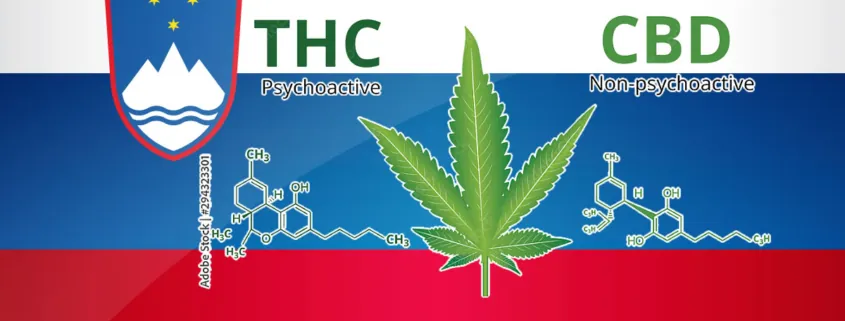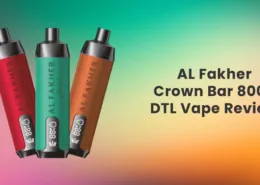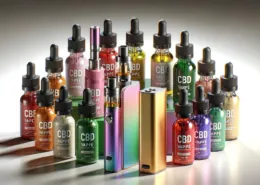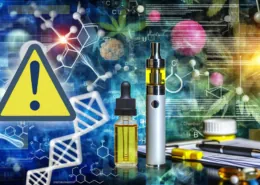CBD and THC Laws Regulations in Slovenia
The regulation of hemp in Slovenia showcases how strong public approval does not always translate into government action to liberalize cannabis laws. The legal landscape for the CBD industry remains complicated, forcing many businesses to operate in a gray area. However, Slovenia’s approach to recreational cannabis use is relatively liberal compared to many other European nations. This article will explore what cannabis products are legally available for purchase and possession in Slovenia.
CBD Laws in Slovenia
Legal Status of CBD
CBD, a non-psychoactive compound found in cannabis, is legal in Slovenia under specific conditions. CBD products can be sold and purchased legally as long as they contain no more than 0.2% THC, the psychoactive component of cannabis.
Regulations for CBD Products
CBD products in Slovenia must adhere to several regulations:
- THC Content: Products must contain less than 0.2% THC to be legally sold.
- Health Claims: Any health claims about CBD products must be substantiated and comply with EU regulations. Misleading or unverified claims are prohibited.
- Labeling: Products must be accurately labeled, including information on CBD and THC content and any other ingredients.
Types of CBD Products
The types of CBD products available in Slovenia include:
- Oils and Tinctures: The most common forms of CBD products, used sublingually or added to food and beverages.
- Cosmetics: CBD-infused creams, lotions, and balms are widely available for their potential skin benefits.
- Edibles: CBD-infused foods and drinks must comply with food safety regulations.
- Vapes: CBD vape products are legal but must adhere to the same THC content restrictions as other CBD products.
THC Laws in Slovenia
Legal Status of THC
THC, the psychoactive compound in cannabis, is tightly regulated in Slovenia. Key points regarding the legality of THC include:
- Recreational Use: The recreational use of cannabis containing THC is illegal. Possession, cultivation, and sale of cannabis for recreational purposes can result in legal penalties, including fines and imprisonment.
- Medical Use: THC is legal for medical purposes under strict regulations. Medical cannabis can be prescribed by doctors for certain conditions, and patients must obtain their medication through authorized channels.
Medical Cannabis Program
Slovenia has a medical cannabis program that allows patients to access THC-containing products under specific conditions:
- Prescription: Patients must have a prescription from a licensed medical professional to obtain medical cannabis.
- Authorized Suppliers: Medical cannabis can only be obtained from authorized pharmacies or suppliers.
- Approved Conditions: Medical cannabis is typically prescribed for chronic pain, multiple sclerosis, epilepsy, and certain types of cancer.
Industrial Hemp
Industrial hemp, which contains low levels of THC (below 0.2%), is legal to cultivate in Slovenia. Hemp can be used for various purposes, including the production of CBD products, textiles, and building materials.
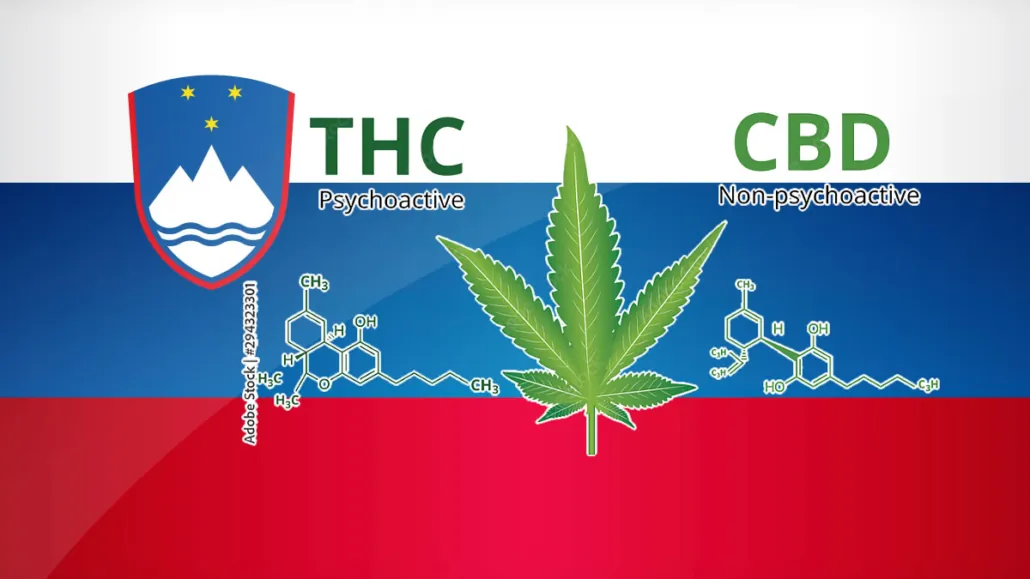
Enforcement and Compliance
Penalties for Non-Compliance
Violating cannabis laws in Slovenia can result in severe penalties:
- Possession: Possessing small amounts of cannabis for personal use can result in fines. Larger quantities can lead to criminal charges and imprisonment.
- Sale and Distribution: Selling or distributing cannabis illegally is a serious offense that can result in significant fines and long prison sentences.
- Cultivation: Cultivating cannabis without proper authorization is illegal and can lead to legal action.
Regulatory Authorities
The following authorities oversee the enforcement of cannabis laws in Slovenia:
- Ministry of Health: Responsible for regulating medical cannabis and ensuring compliance with health-related laws.
- Police: Law enforcement agencies enforce laws related to the possession, sale, and cultivation of cannabis.
- Agricultural Authorities: Oversee the cultivation of industrial hemp and ensure compliance with THC content regulations.
Hemp Cultivation in Slovenia
Slovenia has a long history of hemp cultivation, dating back to the post-war period when it was one of the world’s largest hemp producers. Before World War II, hemp was grown on 160 hectares of farmland. Although cultivation dwindled over time, it resumed in 2000 for seed production and building insulation.
After Slovenia joined the European Union in 2004, regulations became more stringent. Cultivating hemp on less than 0.1 hectares does not require a permit. However, fields larger than 1,000 square meters require a special license from the Ministry of Agriculture. These licenses are only granted for government-approved low-THC varieties. Currently, hemp cultivation covers about 300 hectares per year.
Selling CBD Products in Slovenia
Since joining the EU, Slovenia has seen changes in hemp cultivation, processing, and sales. The Drug Production and Trade Act regulates the cultivation of hemp for food and industrial purposes, allowing the production of seeds and food products like seed oil, flour, and protein.
However, the processing of raw materials like hemp inflorescences and CBD products faces stricter regulations. EU laws define cannabidiol-rich products as new foods, requiring registration and expensive licenses for sale. This has led to a gray market of unregistered CBD companies in Slovenia.
In 2019, state institutions conducted massive inspections, banning many small growers and processors. Some resumed production in the underground economy, while others used imported registered raw materials. Despite the complex legal landscape, CBD products like oils, capsules, cosmetics, and food items are readily available, provided they contain less than 0.2% THC.
Permissible THC Content in Products
Based on EU guidelines, Slovenia’s regulations stipulate that industrial hemp and its products must contain less than 0.2% THC. This applies to all hemp-derived products, including CBD oils, extracts, cosmetics, and medicines.
Carrying Cannabis in Slovenia
While THC-rich cannabis remains illegal, Slovenia has a high degree of social acceptance for cannabis use. According to the Slovenia Drug Report 2018, over 10% of young Slovenians regularly use cannabis.
In 2014, the government decriminalized possession of cannabis for personal use, treating it as a misdemeanor rather than a criminal offense. Possession of small amounts typically results in a fine ranging from €42 to €209. However, growing and selling cannabis remains illegal, with penalties ranging from 1 to 15 years in prison.
Medical Marijuana in Slovenia
After reclassifying cannabis in 2014, Slovenia allowed the use of cannabis-based medicines. However, the medical marijuana program is limited, offering only specific cannabis-derived products like Sativex and Marinol. Patients need a doctor’s prescription to obtain these medicines, but many travel to Austria for better access.
Conclusion
In Slovenia, CBD is legal as long as it contains less than 0.2% THC, while THC remains illegal for recreational use but is allowed for medical purposes under strict regulations. Understanding these laws is essential for consumers, businesses, and healthcare professionals involved with cannabis products. Compliance with the legal framework helps ensure the safe and lawful use of CBD and THC in Slovenia.
References
- Wikipedia: Cannabis in Slovenia – Wikipedia
- Regulation (EU) 2021/2115 – establishing rules on support for strategic plans to be drawn up by EU countries under the common agricultural policy (CAP Strategic Plans)
- Commission Delegated Regulation (EU) 2016/1237 and EU Implementing Regulation 2016/1239 – establishing the import licences rules for hemp.
- How to Choose Safe CBD for Dogs Without Guesswork - August 4, 2025
- Texas Senate Passes Revised THC Ban Bill (SB 5) - August 4, 2025
- Best Delta-8 THC Carts of 2025: Top 5 Vapes Reviewed - July 16, 2025

